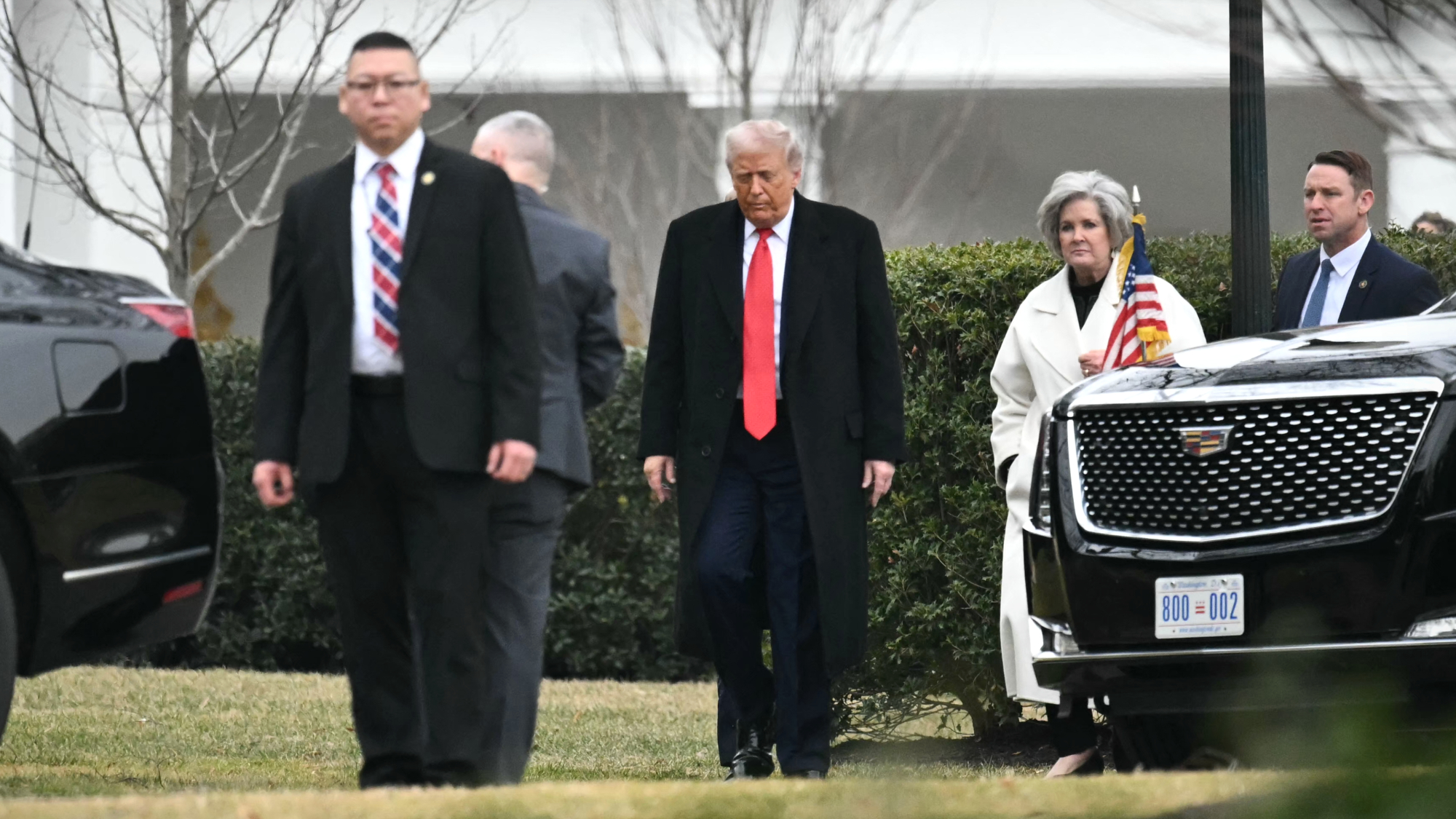Why conservatives keep losing the education wars
Can conservatives break their losing record in the Critical Race Theory fight?


A free daily email with the biggest news stories of the day – and the best features from TheWeek.com
You are now subscribed
Your newsletter sign-up was successful
"All of this has happened before, all of it will happen again."
Thus began the title sequence of the 2000s science fiction series Battlestar Galactica, which expressed the view of the show's Cylon androids that time is cyclical. Rather than progressing toward resolution, they believed, historical events follow a repetitive pattern.
Even without an android's philosophy of history, it's hard to escape that feeling about the education wars that periodically consume American politics. At least since the anti-communism of the postwar era, conservatives have accused public schools of indoctrinating children with left-wing dogma. Critical Race Theory is the target today. In the past, socialism, so-called secular humanism, and multiculturalism played the same role.
The Week
Escape your echo chamber. Get the facts behind the news, plus analysis from multiple perspectives.

Sign up for The Week's Free Newsletters
From our morning news briefing to a weekly Good News Newsletter, get the best of The Week delivered directly to your inbox.
From our morning news briefing to a weekly Good News Newsletter, get the best of The Week delivered directly to your inbox.
If accusations of indoctrination have a repetitive quality, so do the responses. Activists publicize questionable tendencies; education experts deny anything is wrong; usually placid school board or advisory council meetings degenerate into shouting and sometimes violence; politicians with large platforms but limited powers issue sweeping pronouncements about the future of the republic. Finally, state legislatures, which wield broad authority in such matters, prohibit certain curricula or materials and require others.
Far from breaking this cycle, the present controversy is notable for the speed of its progression through the typical stages. Since the presidential inauguration in January, five states adopted laws that restrict concepts and practices associated with what conservatives call "CRT" and progressives prefer to call "equity work." Related bills have been introduced in 16 others.
The swift success of the anti-CRT movement probably won't save it from the fate of its predecessors, though. From laws requiring favorable presentation of free enterprise to protection for critiques of evolution, statute books are where conservative curriculum reforms go to die. The trouble isn't just that some of the CRT laws are badly drafted. It's that they target ideas rather than the structure and personnel of educational institutions.
Laws and regulations aren't self-enforcing, after all. They have to be interpreted at the district, school, and classroom level. We talk about the "American school system," but public education is provided by around 14,000 school districts containing about 100,000 K-12 schools, which collectively employ something like 3.5 million teachers, each of whom enjoys significant discretion over actual instruction.
A free daily email with the biggest news stories of the day – and the best features from TheWeek.com
This level of decentralization is an obstacle to any coherent education policy. A challenge to CRT bans in particular is that they're unpopular among the people responsible for enforcing them. Although not uniformly liberal, teachers tend to support Democrats. Party leaning doesn't determine opinions on any particular issue, of course. But Democrats report overwhelmingly positive opinions about CRT in particular and "structural" accounts of racism in general.
Raw numbers don't tell the whole story, either. As Richard Hanania has argued, motivated minorities outweigh passive majorities. In particular, it's likely that the teachers most active in administration, professional development, and union affairs are more left-leaning than their colleagues. Recent decisions by the National Education Association and American Federation of Teachers to emphasize "anti-racist" policies support this assumption.
As Hanania argues, these circumstances would blunt the impact of even finely-crafted laws. Teachers and administrators warn of a chilling effect, but there's little reason to think statutory mandates about discussions of race will be more effective than requirements that biology instructors give equal time to intelligent design. In any case, classroom instruction is a weak influence on students compared to friends, family, and popular culture. Most students just aren't paying much attention. Finally, schools and districts in liberal cities and suburbs will apply any restrictions more flexibly than those in more conservative rural areas. Since they're more populous, their approaches will have greater influence.
So I'm tempted to predict that CRT bans will end up forgotten or ignored, like the decades-old ban on yoga that was recently repealed by the Alabama legislature. Instead, I want to consider whether there are strategies that might lead to a different and, for conservatives, more favorable result. There are two main possibilities, both of which assume personnel and institutional structure matter more than formal curriculum. But they draw opposite conclusions from that premise.
The first option is a more radical version of school choice than has gained traction so far. For decades, religious, political, and educational conservatives have promoted publicly-supported alternatives. In most cases, vouchers, charters, and other schemes function as exceptions to the rule that the majority students attend the school to which they're assigned by geographic district. Within that model, though, it's virtually impossible for conservatives to seriously influence educational content or methods.
A pluralist strategy would try to change the norm. Rather than exceptions to the rule, it would seek to make a norm of fairly autonomous institutions that reflect specific educational visions, including conservative ones. In recent years, Christians have developed a network of private classical schools, while orthodox Jews maintain a system of days schools and yeshivas. With more and more direct funding from states and the federal government, these and other alternatives might be able to enroll enough to challenge the de facto monopoly of district schools.
This sounds far-fetched, but it's common around the world. Among other examples, the U.K., Belgium, the Netherlands, and several Canadian employ such policies. The interruption of normal schooling by the pandemic has also demonstrated the potential of online instruction for geographically dispersed students. Many parents have been forced by necessity to consider different possibilities.
To my mind, educational pluralism seems like the perfect option for a diverse country. Parents who want their children to study CRT, or natural law, or Talmud, or none of these things would be able to find schools that meet their needs. Theoretically, this would diffuse the tensions that periodically turn local disputes about textbooks into national struggles. Why fight about the staff or curriculum at school A when you can easily send your children to school B, C, or D?
Appealing as it is in principle, though, pluralism faces serious obstacles. Making educational choices is mentally and socially demanding for parents, especially those who have less education themselves. Even with new technology, many parts of the country lack sufficient population density to sustain a range of approaches. Civil rights laws and First Amendment concerns could inhibit schools' ability to pursue exclusive religious or cultural missions. There are also knotty questions of how to determine and uphold appropriate standards of minimum competence.
The main obstacle, though, is public opinion. Whether due to historical precedent, proximity bias, or genuine appreciation, most Americans are satisfied with the public schools their own children attend. As with Congress, we tend to dislike the institution in general while approving of our own representative. Under those conditions, systematic change is a very tough sell.
If we can't significantly expand the variety of publicly-supported schools, the alternative is a long march through existing institutions. In other words, conservatives would have to devote themselves to influencing public schools in every capacity and at every educational level. It's not enough to pass curriculum laws or win periodic elections to the local school board. Building a sufficiently motivated minority would require tens or hundreds of thousands of activists willing to spend long, demanding, and often unrewarding careers as teachers and administrators.
This wouldn't happen overnight or without external support. Something like a Federalist Society for educators would be a welcome development. Regulatory reforms, such as expanding routes to teacher certification outside schools of education, could limit the influence of progressive gatekeepers. Elements of the anti-CRT bills might also help at the margins. Even if they don't change what happens in classrooms, they offer some protection against dubious anti-bias training and compelled speech in administrative settings.
On the whole, though, a conservative reconquest is even harder to imagine than successful educational pluralism. That's not only because so much energy and capital has already been devoted to options outside the district model, which reduce conservative influence within it. The more fundamental challenge is that the American right is temperamentally hostile to public employment, suspicious of formal institutions, and impatient with long-term planning. Those populist tendencies can be advantages in electoral politics, but a serious weakness in the politics of education.
All of this has happened before, all of this will happen again.
Samuel Goldman is a national correspondent at TheWeek.com. He is also an associate professor of political science at George Washington University, where he is executive director of the John L. Loeb, Jr. Institute for Religious Freedom and director of the Politics & Values Program. He received his Ph.D. from Harvard and was a postdoctoral fellow in Religion, Ethics, & Politics at Princeton University. His books include God's Country: Christian Zionism in America (University of Pennsylvania Press, 2018) and After Nationalism (University of Pennsylvania Press, 2021). In addition to academic research, Goldman's writing has appeared in The New York Times, The Wall Street Journal, and many other publications.
-
 Trump’s EPA kills legal basis for federal climate policy
Trump’s EPA kills legal basis for federal climate policySpeed Read The government’s authority to regulate several planet-warming pollutants has been repealed
-
 Political cartoons for February 13
Political cartoons for February 13Cartoons Friday's political cartoons include rank hypocrisy, name-dropping Trump, and EPA repeals
-
 Palantir's growing influence in the British state
Palantir's growing influence in the British stateThe Explainer Despite winning a £240m MoD contract, the tech company’s links to Peter Mandelson and the UK’s over-reliance on US tech have caused widespread concern
-
 House votes to end Trump’s Canada tariffs
House votes to end Trump’s Canada tariffsSpeed Read Six Republicans joined with Democrats to repeal the president’s tariffs
-
 How are Democrats trying to reform ICE?
How are Democrats trying to reform ICE?Today’s Big Question Democratic leadership has put forth several demands for the agency
-
 Is Alex Pretti shooting a turning point for Trump?
Is Alex Pretti shooting a turning point for Trump?Today’s Big Question Death of nurse at the hands of Ice officers could be ‘crucial’ moment for America
-
 Halligan quits US attorney role amid court pressure
Halligan quits US attorney role amid court pressureSpeed Read Halligan’s position had already been considered vacant by at least one judge
-
 House approves ACA credits in rebuke to GOP leaders
House approves ACA credits in rebuke to GOP leadersSpeed Read Seventeen GOP lawmakers joined all Democrats in the vote
-
 The billionaires’ wealth tax: a catastrophe for California?
The billionaires’ wealth tax: a catastrophe for California?Talking Point Peter Thiel and Larry Page preparing to change state residency
-
 Vance’s ‘next move will reveal whether the conservative movement can move past Trump’
Vance’s ‘next move will reveal whether the conservative movement can move past Trump’Instant Opinion Opinion, comment and editorials of the day
-
 Bari Weiss’ ‘60 Minutes’ scandal is about more than one report
Bari Weiss’ ‘60 Minutes’ scandal is about more than one reportIN THE SPOTLIGHT By blocking an approved segment on a controversial prison holding US deportees in El Salvador, the editor-in-chief of CBS News has become the main story
